Imagine waking up to an itchy, red bump on your arm. Your first thought might be a mosquito bite or perhaps a spider. But another, often overlooked culprit could be responsible: the common cockroach.
Even though these pests are widely known for scurrying across kitchen floors or lurking in dark corners, their potential to bite humans is less recognized. In this blog, we will answer your question, “Do cockroaches bite?” and explore the symptoms of these bites, how to prevent them, and the best treatments if you find yourself an unwitting victim.
Do Cockroaches Bite?
Yes, cockroaches bite humans – but among the thousands of cockroach species, only a few, such as the German, American, and Oriental cockroaches, cohabit with humans and are more prone to biting.
When cockroaches are most active, these bites are more likely to occur at night, often targeting areas with food residues like hands, fingernails, and around the mouth. However, in severe infestations, they may also bite exposed skin areas like the face, hands, and feet.
Symptoms of a Cockroach Bite: Recognizing and Responding Effectively
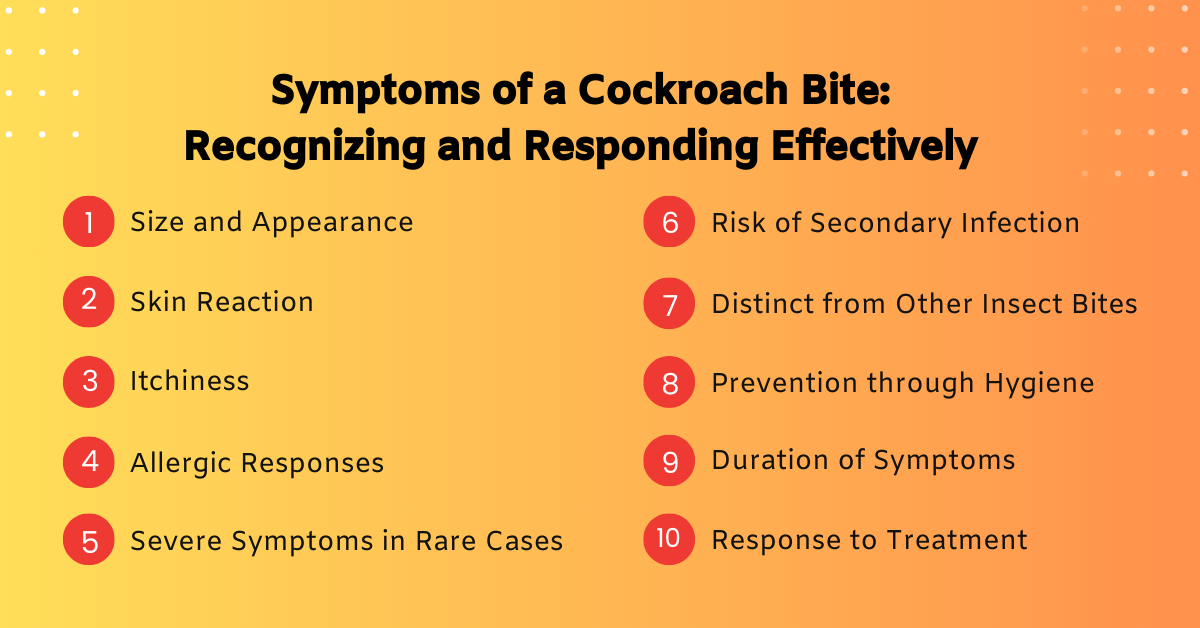
Do cockroaches bite? Yes, and recognizing the symptoms of a cockroach bite is essential for effective treatment and relief. Here’s what you need to know:
- Size and Appearance: Do cockroaches bite in a distinctive way? Indeed, they do. Cockroach bites are usually large, red, raised bumps, often irregular in shape and up to one inch in diameter. This size is significantly larger than mosquito or flea bites, making it easier to identify a cockroach bite.
- Skin Reaction: When a cockroach bites, the skin around the bite can become swollen and tender. Some individuals might experience allergic reactions, such as redness and rashes. The severity of these reactions to a cockroach bite varies from person to person.
- Itchiness: A hallmark of a cockroach bite is intense itching. It’s crucial to manage this itchiness without scratching to avoid further irritation or potential skin infection.
- Allergic Responses: Those with sensitive skin or allergies might experience more severe reactions to a cockroach bite, including pronounced redness, swelling, and extensive rashes.
- Severe Symptoms in Rare Cases: Do cockroaches bite and cause severe symptoms? In rare cases, yes. Symptoms like significant pain, pus formation, or fever may occur, indicating an infection or severe allergic reaction, necessitating immediate medical attention.
- Risk of Secondary Infection: Excessive scratching of a cockroach bite can lead to secondary infections, marked by increased redness, swelling, pus, and pain.
- Distinct from Other Insect Bites: The larger size and irregular shape of cockroach bites help distinguish them from bites of other common insects, aiding in early recognition and proper treatment.
- Prevention through Hygiene: Do cockroaches bite more in unhygienic conditions? Maintaining cleanliness and hygiene is a key preventive measure against cockroach infestations and bites, highlighting the importance of regular cleaning and proper food storage.
- Duration of Symptoms: Symptoms of a cockroach bite can linger longer than those from other insects like mosquitoes. If symptoms persist, seeking medical advice is recommended.
- Response to Treatment: Generally, cockroach bites respond well to home treatments like cleaning and antiseptic creams. However, monitoring the bite for signs of improvement is important to ensure the effectiveness of the treatment.
Prevention Tips: Keeping Cockroaches at Bay
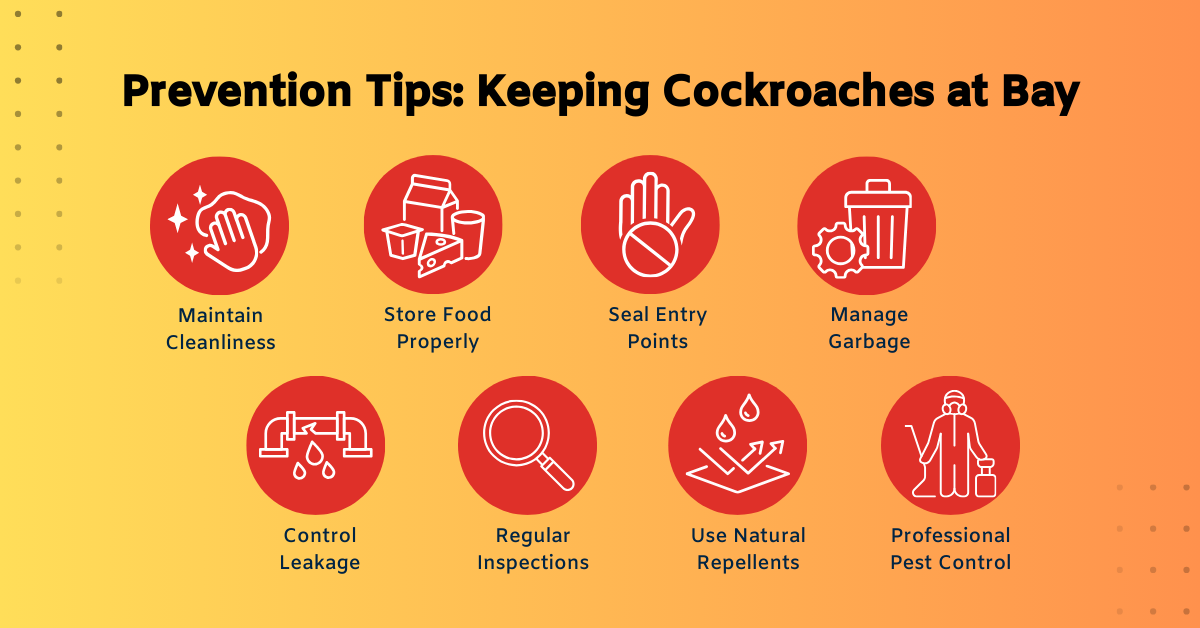
Preventing cockroach bites starts with deterring these unwelcome guests from entering your home. This involves creating an environment that’s unattractive to them and eliminating their access. Here are some strategies to help you keep cockroaches away:
- Maintain Cleanliness: Maintaining cleanliness is key to preventing the question, “Do cockroaches bite?” from becoming a concern in your home. Regular cleaning is your first line of defense. Cockroaches are attracted to food particles, so keeping your kitchen and dining areas spotless is crucial. Wipe down counters, sweep and mop floors regularly, and clean up any spills immediately. Don’t forget less obvious places where food debris can accumulate, like under the fridge or stove.
- Store Food Properly: Keep all food in sealed containers. This includes pet food, which should not be left out overnight. Cockroaches can chew through paper and plastic, so use sturdy, airtight containers for storage. Regularly check your pantry and cabinets for any signs of cockroach presence.
- Seal Entry Points: Cockroaches can squeeze through tiny cracks and crevices. Conduct a thorough inspection of your home, identifying potential entry points such as gaps around doors, windows, and pipes. Seal these using caulk or weather stripping. Remember to also check for gaps in vents and roof eaves.
- Manage Garbage: Your trash can is a buffet for cockroaches. Ensure that all garbage is disposed of regularly and kept in bins with tight-fitting lids. If possible, keep your bins outside and away from the house. Regularly clean the bins to remove any food residue or liquids.
- Control Leakage: Cockroaches need moisture to survive. Fix any leaky faucets, pipes, or drains. In areas prone to dampness, like basements or bathrooms, use dehumidifiers to dry the air. Regularly check for and address any water accumulation in your home.
- Regular Inspections: Regularly inspect dark and rarely disturbed areas of your home, like the attic, basement, and under the sink. These are prime hiding spots for cockroaches.
- Use Natural Repellents: Consider using natural cockroach repellents like bay leaves, cucumber slices, or garlic in areas prone to cockroach activity. While not as effective as chemical solutions, they can provide some deterrent effects.
- Professional Pest Control: If you’re facing a severe infestation, it might be time to call professional pest control services. They can provide targeted treatments to eliminate cockroaches and prevent future infestations.
Treatments for Cockroach Bites: Effective Relief and Care
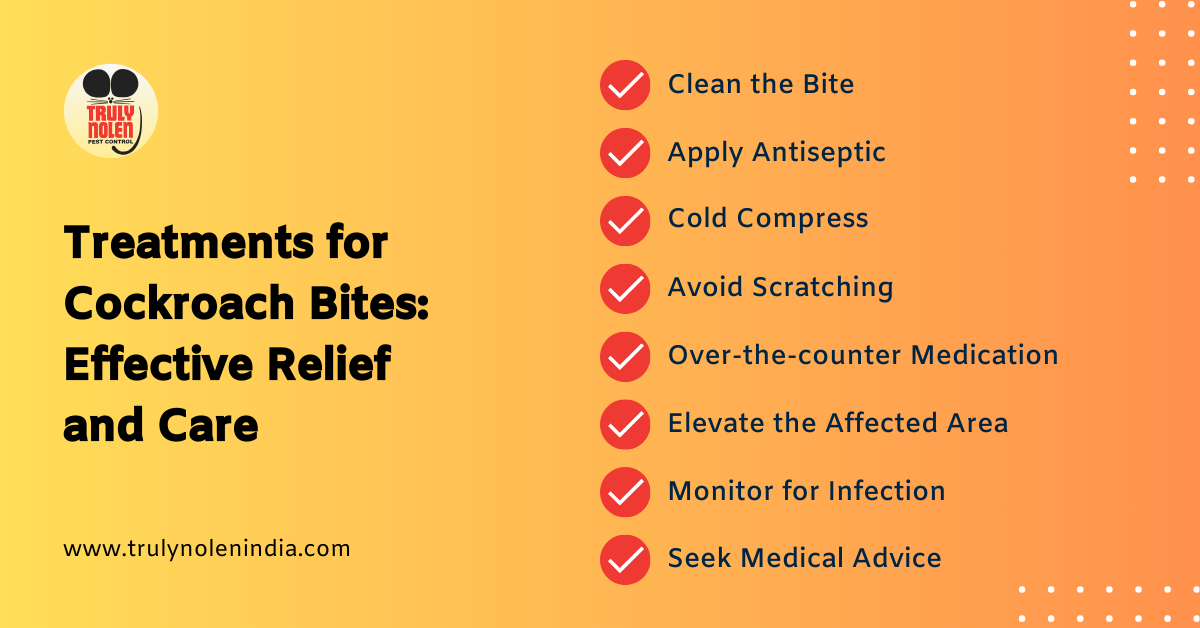
When confronted with the question, “Do cockroaches bite?” it’s important to know the right steps for treatment to minimize discomfort and prevent infection. Here’s what you should do if you’re dealing with a cockroach bite:
- Clean the Bite: First, wash the affected area thoroughly with soap and water. This helps to remove any bacteria and reduces the risk of infection. Ensure the water is not too hot, which can aggravate the bite.
- Apply Antiseptic: After cleaning the bite, apply an antiseptic cream or lotion. This further lowers the risk of infection and begins the healing process. Products containing ingredients like aloe vera can also soothe the skin and reduce itchiness.
- Cold Compress: A cold compress or a clean cloth soaked in cold water can reduce swelling and alleviate pain. Apply the compress to the bite for a few minutes, ensuring not to apply ice directly on the skin.
- Avoid Scratching: While it may be tempting, scratching the bite should be avoided as it can exacerbate irritation and lead to an open wound, increasing the risk of infection. Keeping nails trimmed and wearing gloves at night can prevent accidental scratching.
- Over-the-counter Medication: For bites that are particularly itchy or swollen, over-the-counter antihistamines can provide relief. Hydrocortisone cream is also effective in reducing inflammation and itchiness. Always follow the dosage instructions on the package and consult your doctor.
- Elevate the Affected Area: If the bite is on a limb, elevating it can help reduce swelling. This is especially effective when combined with the use of a cold compress.
- Monitor for Infection: Monitor the bite for signs of infection, such as increased redness, swelling, warmth, or pus. If these symptoms occur, it is important to seek medical attention.
- Seek Medical Advice: If symptoms persist or worsen despite home treatment or if you have concerns about an allergic reaction, it is important to consult a healthcare professional. They may prescribe stronger medication or advise further treatment.
Your Home’s Guardian Against Cockroaches – Truly Pest Solution
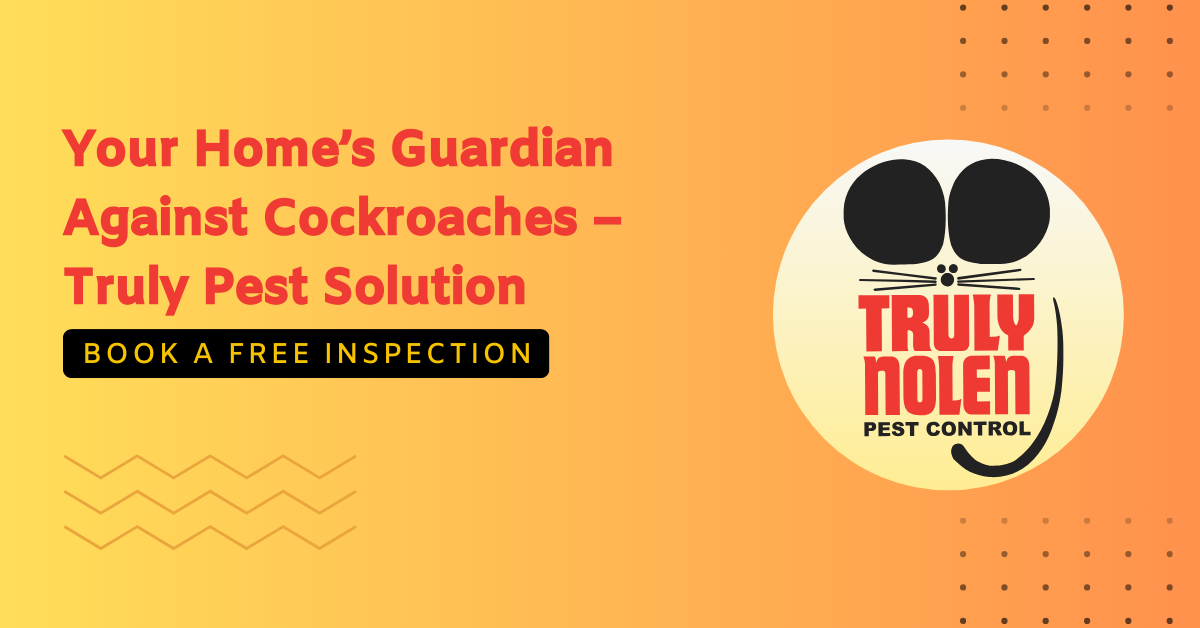
Now that you have the answer to your question, “Do cockroaches bite?” and you’re equipped with the knowledge on how to tackle cockroach infestations – understanding how to identify these pests, prevent their bites, and ensure they don’t become a recurring problem requires effort and persistence.
But what if you’re facing a severe cockroach infestation? Tackling such extensive problems with home remedies and DIY methods can be daunting.
Wondering how to handle serious infestations effectively? That’s where Truly Pest Solution is backed by our extensive experience and advanced methodologies like Intelligent Snow Gel Service. With ISGS, Truly Pest Solution offers a safe, efficient, and technologically advanced method to prevent cockroaches in your home and maintain a safe environment.
Don’t let cockroaches disrupt your comfort and health – contact Truly Pest Solution today!
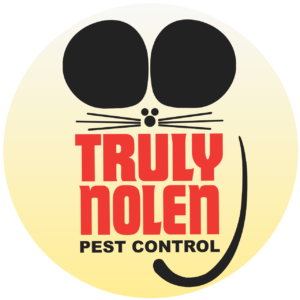
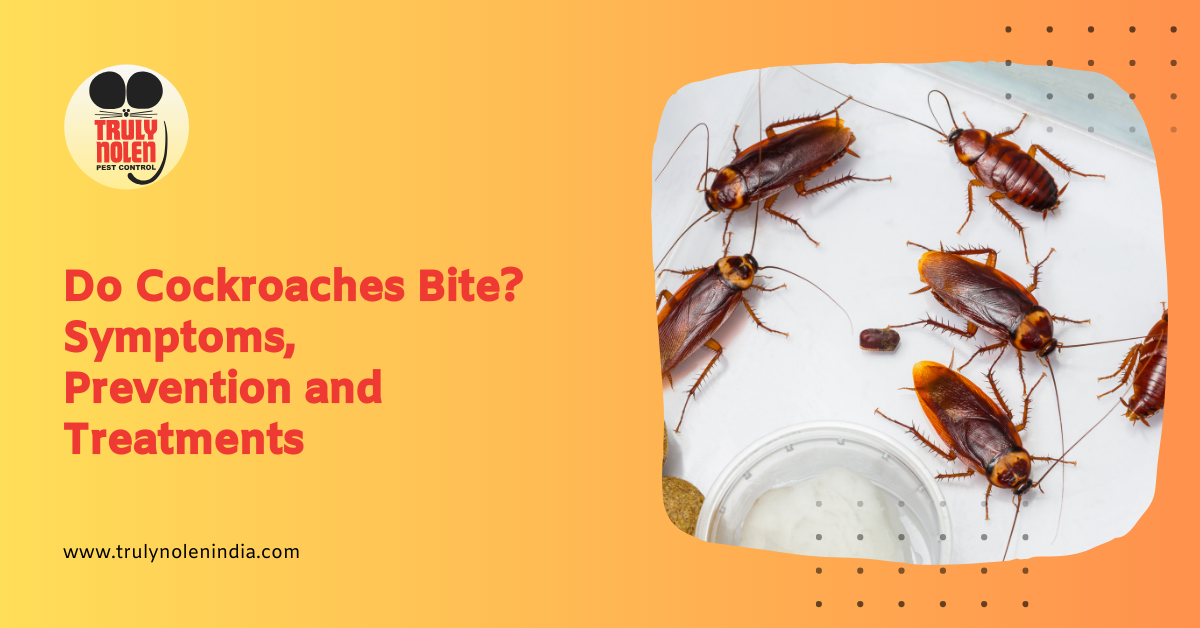
Leave a Reply